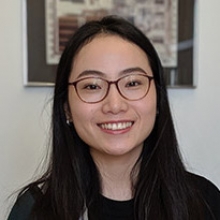EECS Seminar: Quantitative Security Analysis of Micro-architectural Side Channels

Assistant Professor
Department of Electrical Engineering and Computer Science
MIT
Abstract: Micro-architectural side-channel attacks have become a serious security threat. To defend against microarchitectural side channels, researchers have been struggling with making trade-offs between security and performance for decades.
Channel obfuscation is one of the practically promising mitigation techniques. The key idea of channel obfuscation involves two aspects. First, make microarchitecture behave non-deterministically so that it is harder for the attacker to monitor the architecture state. Second, change the microarchitecture configuration parameters periodically so that the time for the attacker to deduce the architecture state is reduced. However, the security properties of channel obfuscation techniques are far from being well understood.
This talk will discuss how to evaluate side-channel mitigation mechanisms. It will focus on our recent work on quantitative security analysis of randomly mapped caches, including ScatterCache and Skewed-CEASER. By leveraging the concepts from the field of telecommunications, we innovatively formulate the security analysis into a statistical problem and develop a comprehensive analysis framework, called CaSA. We use CaSA to identify the intrinsic limitations of these randomly mapped cache designs and make new observations that refute several common beliefs.
Bio: Mengjia Yan is an assistant professor in the Department of Electrical Engineering and Computer Science at the Massachusetts Institute of Technology (MIT). She received her doctorate from the University of Illinois at Urbana-Champaign (UIUC). Her research interest lies in the areas of computer architecture and hardware security, with a focus on side-channel attacks and defenses. Mengjia has received the ACM SIGARCH/IEEE CS TCCA Outstanding Dissertation Award Honorable Mention, the David J. Kuck Outstanding Ph.D. Thesis Award in Computer Science at UIUC, the Computer Science W.J. Poppelbaum Memorial Award, an ACM Research Highlight, multiple MICRO TopPicks in Computer Architecture, and a MICRO best paper award.
Host: Zhou Li
Share
Upcoming Events
-
MSE 298 Seminar: Radiation Resistance and Mechanical Response of Ceramics in Extreme Environments
-
EECS 294 Seminar: Programming Light Diffraction for Information Processing and Computational Imaging
-
MAE 298 SEMINAR: Stretchable Electronics for Soft Biological and Robotic Systems
-
CBE Distinguished Lecture/CBE 298 Seminar: Computational Design of Peptides as Detectors, Sensors and Drugs
-
MSE 298 Seminar: Molecular Modeling in the Age of AI - From Energy Materials to Device Simulations
